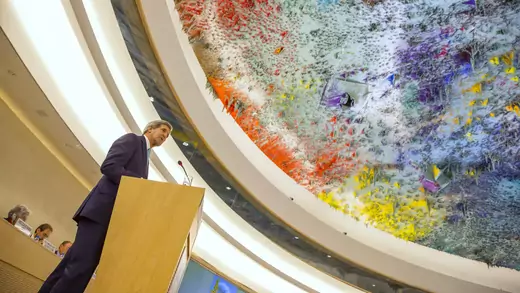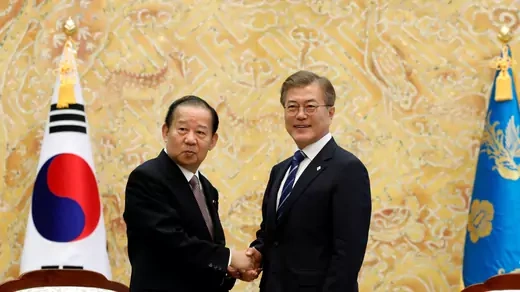- Iran
- Israel-Hamas
-
Topics
FeaturedIntroduction Over the last several decades, governments have collectively pledged to slow global warming. But despite intensified diplomacy, the world is already facing the consequences of climate…
-
Regions
FeaturedIntroduction Throughout its decades of independence, Myanmar has struggled with military rule, civil war, poor governance, and widespread poverty. A military coup in February 2021 dashed hopes for…
Backgrounder by Lindsay Maizland January 31, 2022
-
Explainers
FeaturedDuring the 2020 presidential campaign, Joe Biden promised that his administration would make a “historic effort” to reduce long-running racial inequities in health. Tobacco use—the leading cause of p…
Interactive by Olivia Angelino, Thomas J. Bollyky, Elle Ruggiero and Isabella Turilli February 1, 2023 Global Health Program
-
Research & Analysis
Featured
Terrorism and Counterterrorism
Violence around U.S. elections in 2024 could not only destabilize American democracy but also embolden autocrats across the world. Jacob Ware recommends that political leaders take steps to shore up civic trust and remove the opportunity for violence ahead of the 2024 election season.Contingency Planning Memorandum by Jacob Ware April 17, 2024 Center for Preventive Action
-
Communities
Featured
Webinar with Carolyn Kissane and Irina A. Faskianos April 12, 2023 Academic and Higher Education Webinars
-
Events
FeaturedJohn Kerry discusses his work as U.S. special presidential envoy for climate, the challenges the United States faces, and the Biden administration’s priorities as it continues to address climate chan…
Virtual Event with John F. Kerry and Michael Froman March 1, 2024
- Related Sites
- More
October 13, 2021
GlobalThis was an extraordinary year for the Council. Established in the wake of a global pandemic of influenza, CFR experienced its centennial year amid another—COVID-19. Although the celebrations this ye…

January 3, 2017
Human RightsOverview Two successive terms of U.S. membership on the UN Human Rights Council (UNHRC), before the mandatory one-year hiatus, have improved the body’s performance in several ways. These improveme…

December 11, 2015
Diplomacy and International InstitutionsOverview Fifty years after the establishment of official diplomatic relations between Japan and South Korea, continued animosity between the United States' two Northeast Asian allies remains a pro…

June 27, 2023
World OrderSessions were held on the future of AI governance, accountability for war crimes in the invasion of Ukraine, reworking the Sustainable Development Goals and the global development model, revitalizing…

May 29, 2012
Economic CrisesHow do the recent economic collapse and recovery match up with past cycles? This chart book provides a series of answers, plotting current indicators (in red) against the average of all post–World Wa…
 Online Store
Online Store